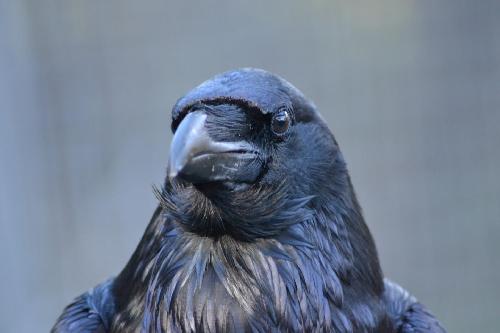Recent studies purported to demonstrate such a basic 'Theory of Mind' in non-human animals like chimpanzees, monkeys, and corvids. However, these studies remain controversial because they share a common confound: the other's head orientation or line of gaze, which could serve as an associative cue.
The current study is the first to rule out this confound: Thomas Bugnyar from the Department of Cognitive Biology at the University of Vienna and his colleagues tested ravens for their understanding of 'seeing' as mental state, using the birds' predisposition to compete for hidden food. In a first step, the ravens showed cache protection behaviors when dominants were visible but not when they were just audible in the adjacent room. In the next step, the ravens were introduced to a small peephole, which allowed them to peek into the adjacent room. With the peephole being open, the ravens instantly guarded their caches against discovery when they now could hear dominants in that room. The presence of dominants was simulated via playback of sounds. Hence, there were no behavioral cues that ravens could orient on. Yet, they behaved as if someone could see them.
"The results indicate that ravens mentally integrate information about the others' audible presence and their own visual experience of seeing through the peephole, which fits one of the recent hypotheses of how a Theory of Mind could work" says Bugnyar. "The study also shows how fruitful it can be to talk to scholars from other fields, as it got kick-started by discussions with philosophers", notably our co-author Cameron Buckner' Bugnyar adds.
 The results suggest that ravens can connect the acoustic information with their own experience mentally. Credit: Copyright: Jana Müller, Universität Wien
The results suggest that ravens can connect the acoustic information with their own experience mentally. Credit: Copyright: Jana Müller, Universität Wien
source: University of Vienna